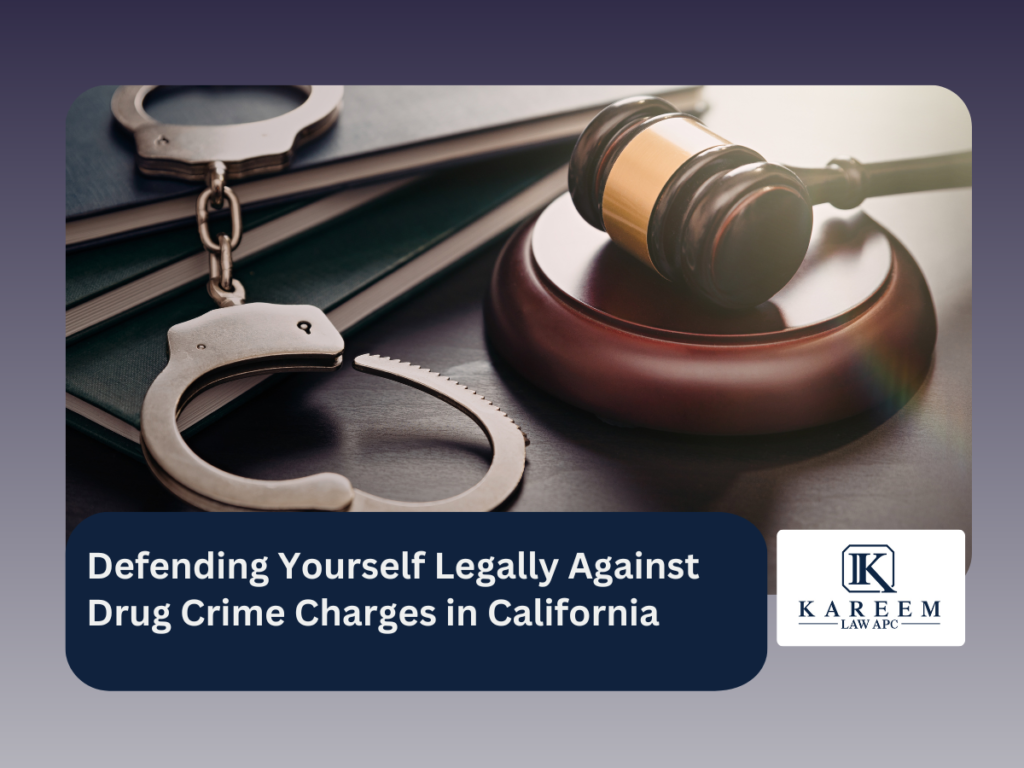Drug charges can have serious consequences, including criminal records, fines, and imprisonment. Defending against drug charges requires a thorough understanding of legal approaches and considerations. This guide explores effective strategies and important factors to consider when facing drug-related offenses.

Understanding Drug Charges
Types of Drug Charges
Drug charges can vary widely depending on the nature of the offense. Common types of drug charges include:
- Possession: Being found with illegal drugs, whether for personal use or distribution.
- Trafficking: Involvement in the illegal sale or distribution of controlled substances.
- Manufacturing: Producing or creating illegal drugs.
- Distribution: Distributing or delivering controlled substances to others.
Legal Definitions and Penalties
Understanding the legal definitions and potential penalties for drug offenses is crucial. Penalties can range from fines and probation to lengthy prison sentences. The severity of the punishment often depends on factors such as the type and amount of drug involved, prior convictions, and the jurisdiction’s laws.
Common Legal Approaches to Drug Defense
Challenging the Legality of Search and Seizure
One of the most effective strategies in defending against drug charges is to challenge the legality of the search and seizure that led to the discovery of the drugs. This approach involves:
- Illegal Searches: Arguing that the search was conducted without a valid warrant or probable cause, violating the Fourth Amendment. Evidence obtained through illegal searches may be excluded from the trial.
- Improper Seizure: Contesting the manner in which evidence was seized, such as improper handling or lack of consent.
Questioning the Evidence
Another critical tactic is to question the prosecution’s evidence. This includes:
- Chain of Custody Issues: Ensuring that the evidence was properly handled and documented. Any lapses in the chain of custody can undermine the evidence’s reliability.
- Lab Testing Errors: Contesting the accuracy of drug testing conducted by forensic labs. Errors or contamination in testing procedures can lead to challenges in the evidence’s validity.
Asserting Defenses Based on the Accused’s Intent
The intent behind drug charges can influence the defense strategy. Common defenses include:
- Lack of Knowledge: Claiming that the accused did not know they were in possession of illegal drugs. This defense may be applicable if the drugs were found in a shared space or were inadvertently acquired.
- Medical Necessity: Arguing that the drug use was for medical purposes, particularly if the accused had a valid prescription or medical condition that justified the use of controlled substances.
Legal Considerations in Drug Defense
Assessing the Prosecution’s Case
Evaluating the strengths and weaknesses of the prosecution’s case is essential. This involves:
- Reviewing Evidence: Analyzing the evidence presented by the prosecution, including witness statements, lab reports, and arrest records.
- Identifying Weaknesses: Spotting inconsistencies or gaps in the prosecution’s case that can be exploited during the defense.
Exploring Plea Bargain Options
Plea bargaining can be an effective strategy in drug cases. This involves negotiating with the prosecution to:
- Reduce Charges: Agreeing to plead guilty to lesser charges in exchange for a reduced sentence or dismissal of more severe charges.
- Avoid Trial: Reaching a plea deal to avoid the uncertainties and risks associated with going to trial.
Considering Alternative Sentencing
In some cases, alternative sentencing options may be available. These can include:
- Drug Court Programs: Participating in specialized drug courts that offer rehabilitation and treatment programs instead of traditional incarceration.
- Probation: Receiving probation with conditions such as drug counseling, community service, or regular check-ins with a probation officer.
Building a Strong Defense Strategy
Hiring an Experienced Attorney
An experienced criminal defense attorney is crucial in defending against drug charges. They provide:
- Legal Expertise: Knowledge of drug laws, defense strategies, and courtroom procedures.
- Negotiation Skills: Ability to negotiate plea deals and navigate the legal system effectively.
Gathering Evidence and Witnesses
Building a strong defense involves gathering evidence and identifying witnesses that support the defense. This includes:
- Collecting Evidence: Obtaining documents, testimonies, or other evidence that supports the accused’s version of events.
- Witness Testimonies: Securing statements from witnesses who can provide relevant information or corroborate the defense’s claims.
Preparing for Trial
If the case goes to trial, thorough preparation is essential. This involves:
- Developing a Defense Strategy: Crafting a clear and compelling defense narrative that addresses the prosecution’s claims.
- Rehearsing Testimonies: Preparing the accused and witnesses for their testimonies to ensure they are clear and consistent.
Conclusion
Defending against drug charges requires a comprehensive understanding of legal strategies and considerations. By challenging the legality of search and seizure, questioning evidence, asserting intent-based defenses, and exploring plea bargains, individuals can build a robust defense against drug charges. Engaging an experienced attorney, gathering supporting evidence, and preparing diligently for trial are crucial steps in achieving a favorable outcome. Understanding these approaches helps navigate the complexities of drug offenses and protect the rights of the accused.









